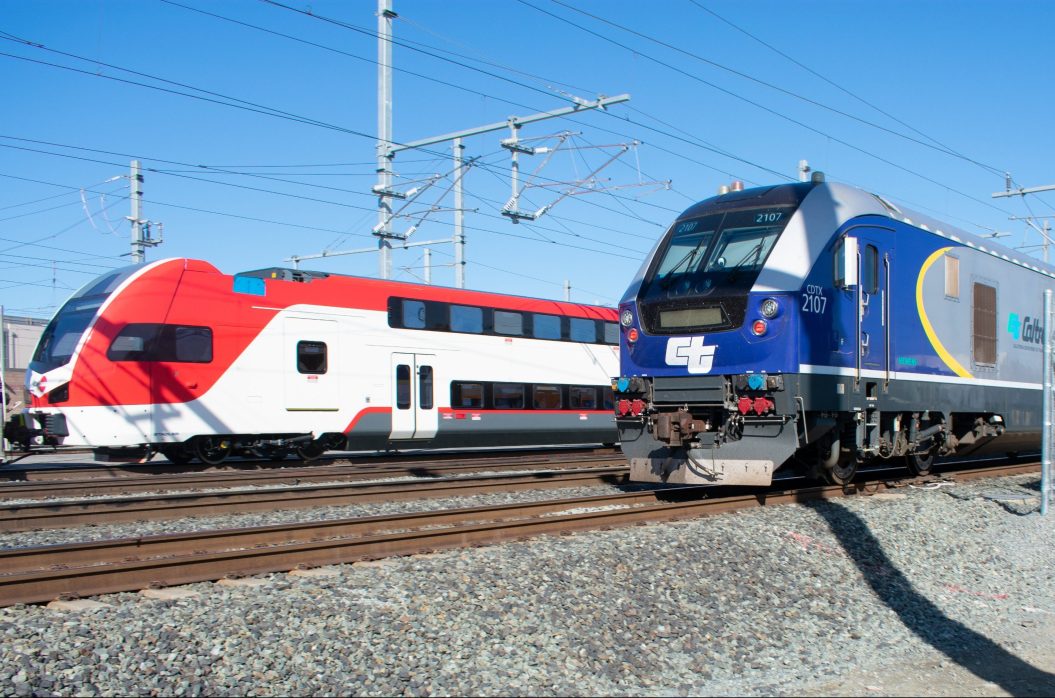- Nearly $70 billion in federal COVID relief is running out, and now transit agencies are facing budget deficits, layoffs and service cuts. Yet the problem goes back much further, to the Reagan administration. Transit advocates are calling on Washington to take action, but in the meantime some states and cities are stepping up. (New York Times)
- Project labor agreements cut costs for infrastructure projects while else helping to build a stronger construction workforce. (Governing)
- Instead of designing safer roads, the Texas DOT says it's your fault if you die in a wreck and you're not wearing a seat belt. Cops even think monster trucks are safe if you're strapped in — never mind what lifted pickups can do to anyone underneath. (Fast Company)
- Some California lawmakers are urging Gov. Gavin Newsom to shift money from the state highway maintenance fund rather than cut $600 million from a walking and biking safety program. (Politico)
- The proposed location for a St. Paul transit station on Arcade Street could discourage people from using it. (MinnPost)
- Sound Transit staff is urging the Seattle agency's board not to delay on building a new South Lake Union transit station. (The Urbanist)
- A new Albuquerque report calls for adding bus stops and extending service hours while cutting duplicate routes. (KRQE)
- St. Louis Mayor Tishaura Jones is developing the city's first walking, biking and transit plan in decades. (Riverfront Times)
- Allegheny County, Pennsylvania is offering half-price transit rides to low-income residents. (WESA)
- A federal judge ordered New Orleans to add more handicapped-accessible stops to a streetcar line after an 8-year-old who uses a wheelchair filed a lawsuit. (NOLA.com)
- The Missourian found that Columbia, home to the University of Missouri, is not a very walkable city. Advocates in Columbia are also pushing for pedestrian safety improvements as part of a freeway interchange project. (KOMU)
- Carlton Reid writes that the "mini-Holland" biking and walking makeover of a London suburb should be an example for communities worldwide. (Forbes)
- The U.S. Embassy is a major scofflaw when it comes to London's congestion charges, owing the city more than $18 million. (The Autopian)
Today's Headlines
Thursday’s Headlines Need a Hero
Who will save transit now that federal COVID funds are running out? The New York Times investigates.

Stay in touch
Sign up for our free newsletter
More from Streetsblog USA
Americans Demand Congress Fund Active Transportation In Next Infrastructure Bill — And Not Just The Bike/Walk Advocates
A "back to basics" surface transportation bill — as Republicans are seeking — would be devastating for road safety and small businesses.
Friday’s Headlines Take a Lot to Laugh, Take a Train to Cry
I ride on a mail train, baby. Can't buy a thrill.
Talking Headways Podcast: The Future of Transit
Yonah Freemark talks with Jeff Wood about the state of the trains across the world.
Are Roundabouts Just For Rich People?
And if not, how do we get more of them in the low-income neighborhoods that need life-saving infrastructure the most?
Thursday’s Headlines Need Alternatives
Economics 101: Competition brings down costs.
How Recreational Cycling Can Lead to Safe Streets For All
These cities are leveraging joy to fight for connected communities.





